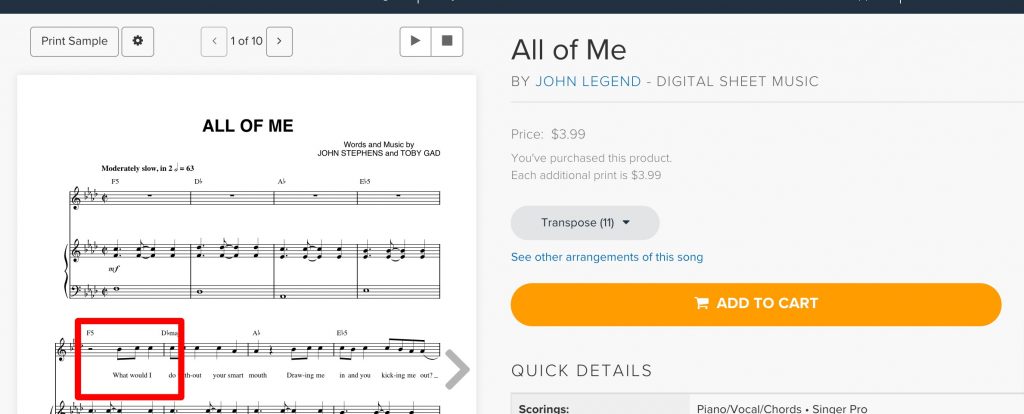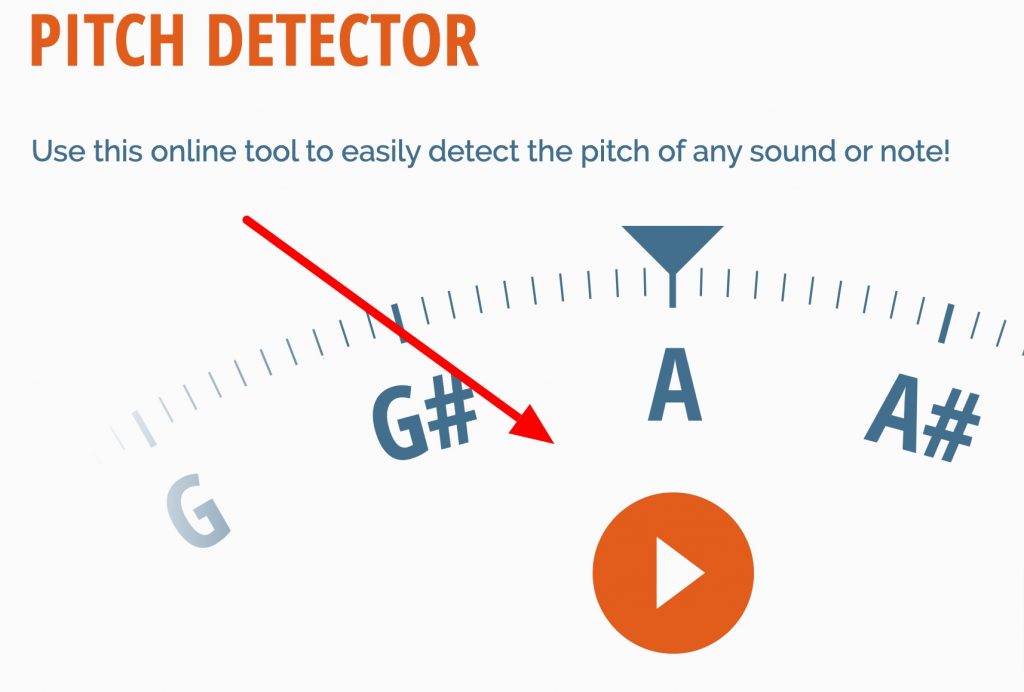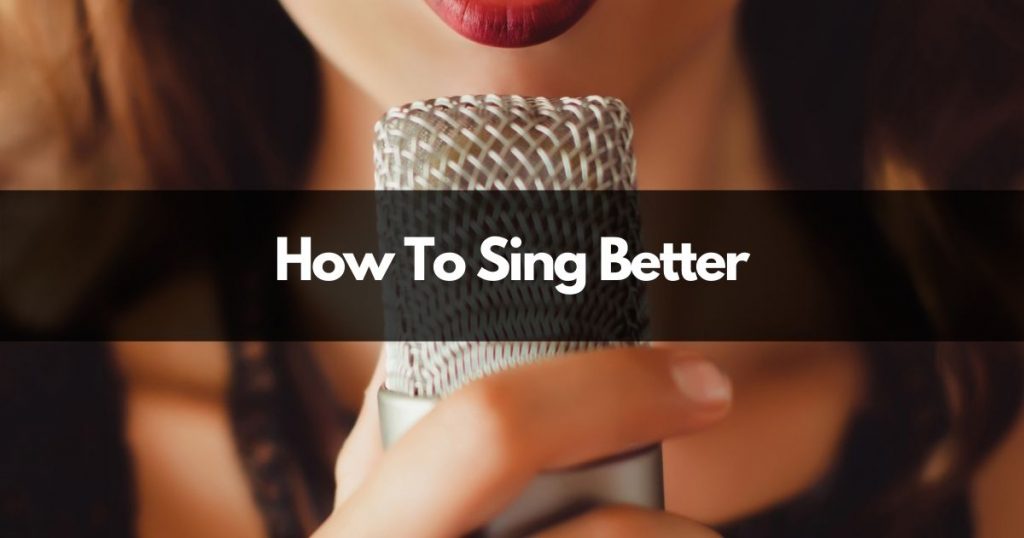You want to learn how to sing better. That’s why you’re (hopefully) on this blog post you probably found online.
Whether it’s wowing your friends and family at karaoke, or getting ready for an audition, you want to have that powerful, clear voice and show it off.
That’s why I’m going to give you real world advice that I applied to my own voice that helped me actually get better so that you can have the knowledge that I wish I had when I first started.
Plus, I know the feeling of having a voice you worked on that sounds great and the many benefits that come along with it.
So let’s get started.
Can Anyone Learn To Sing?
Absolutely.
I truly want you to believe that you can change your voice and sound great if you put in the right effort.
Don’t be like me who thought for over 21+ years you couldn’t improve your voice because you saw those 4-year-old kids belting out Ariana Grande perfectly on American Idol… or someone who tried to improve it anyway and wasted 3 years on vocal exercise training wondering why the hell my voice didn’t sound good after doing all those silly exercises for so long.
Here’s the deal: As long as you have a voice and noise comes out of it, you can learn how to sing.
It doesn’t matter if you sound like a donkey, if you’re shy and you sound quiet like a mouse, or if you’re even tone deaf (which is very unlikely since only 5% of the population is truly tone deaf.)
You can learn how to sing.
And if you don’t believe me, you can check out all those vocal transformations on YouTube.
Sure, some of them already “sound good” but some of those are real because I went from sounding like a wheezing donkey to someone asking me if I sang choir when I was little (which I didn’t.)
So my answer is yes, you can absolutely improve your voice.
Now let’s first jump into real vocal tips you can use immediately to improve your voice no matter where you are on your vocal journey.
- Skip Those Silly Warm Up Vocal Exercises

If you want to learn how to sing better fast, then I highly recommend that you skip those silly warm up vocal exercises, especially when you’re starting out.
Now, warmups are really important for your voice but what I’m talking about are those “warmup vocal exercises” designed to improve your voice.
You might ask, “do those warm up vocal exercises actually improve your voice?”
And my answer is… kinda…
Here’s why.
Those silly warm up vocal exercises improve your voice, but they are probably not what you’re looking for when you are trying to sing better.
This is because although it uses your voice and you are working on expanding your range and saying these silly sounds like “goog goog goog…” chances are you will not sing that ever during a karaoke song.
Think of it this way.
Imagine a bodybuilder working out on his calves, training to strengthen his legs for an upcoming MMA kickboxing fight (It already sounds kind of silly with this analogy.)
- Did his legs get stronger? Yeah.
- Will he kick stronger? Kind of…
- Will he have a stronger kick than another bodybuilder who practiced specifically on getting his kicks stronger by kicking a sandbag? I really doubt it.
It’s the same with these vocal warm-ups. You are strengthening certain parts of your voice, but you aren’t training on the foundational stuff like:
- Melody
- Range
- Pitch
- Etc.
Things that will make a difference in how you sound when you sing an actual song.
And that brings upon the second problem with these exercises is if you don’t have the foundation for being able to hear the notes properly and matching it properly, then you might sing the wrong notes the entire time (just like me.)
I didn’t have any melody, range or pitch training, so I kind of feel sorry for my roommates who had to hear my tone-deaf voice for an entire year repeating those silly lines.
I only worked on saying “goog goog goog” the best I can without working on the important foundational stuff.
You need to do real functional training with actual songs if you want to improve your voice.
However, they aren’t completely useless if you do it with real vocal training. If we’re going back to the MMA example, then it’s working on the secondary stuff like working on your calves, working on your balance, working on your flexibility ,etc. It’s definitely helpful, but it shouldn’t be the primary focus of your training.
So for your voice, it can pinpoint certain syllables at a higher range or fixing your nasality.
So how do you warm up properly?
I found the best way to warm up is to drop the key of the song 6-12 times down and work myself up back to the original key.
The purpose of a warmup is to comfortably use your voice so that you can train for whatever you want to work on, whether it’s:
- Runs
- Vibrato
- Pitch
You can do this by humming, or singing along with a song in your regular voice… or drop it by multiple keys below so that it’s in your comfy range and slowly work your way up.
Especially as a beginner, you might as well work on both actual vocal training by matching pitch while warming up your voice for the real things.
2. If You Only Had One Thing To Train, Focus On Pitch
Pitch is king.
I don’t care if you have the best vibrato, best runs, or even the best range in the world…
If you have zero pitch, then it’s going to sound bad.
Period.
Think about it like this. Imagine you have the best Steinway piano, but all the notes are out of tune (you can probably see where this is going…) Although it may have the best quality, and you spent a ton of money on it, if you didn’t tune the notes properly, then it’s going to sound horrible when you play it.
It’s the same thing with your voice. You want to make sure you can hit the notes properly before working on all the other cool stuff like vibrato and runs.
So how do you work on your pitch?
The best way to learn to work on your pitch is to listen to songs at a slower speed and make sure that you are singing the notes on pitch.
It’s really that simple.
What I do nowadays if I want to work on my pitch is that I listen to a song at around 50% original speed. But in order to do that, you need to have a certain amount of ear training (something that I also had to learn since I couldn’t do this)
So how do you work on your ear training?
The best way to work on your ear training is to get a vocal pitch tuner and find your favorite melody where you hit each note while visually seeing if you’re hitting the note.
Let me break that down for you.
Let’s say I want to learn how to sing “All of Me” by John Legend and I had absolutely no ear training where you think you are tone deaf because you can’t match your pitch to the singer.
So what I would do is first head to a place to find the song lyrics and notes like musicnotes.com and find it below for singers…

Now the phrase “What would I…” is in the key of A flat with the first three notes B flat, C, and C.
Then what I would do is I would go to a virtual piano (a real one works too) and play those exact notes on the piano like this virtual piano below…

The notes on the virtual piano would be “P, S, S.”
So now that you know what the notes are and what they sound like. But now you need to see if you’re even hitting the notes properly. And that’s where this free online pitch trainer comes in below…

So the notes you want to make sure that you are hitting are B flat 4, C5, and C5. If the notes are too high for you, you can always drop the key so that you keep the same melody.
And this is how you get better at both your ear and pitch training because you can visually see if you are hitting the notes correctly, which is the foundation for singing any song well.
Now, when you’re intermediate and advanced, you can usually skip these steps and just listen to the music at a slower speed like me because your ability to match pitch will become great.
This is a proven and effective way to help with your pitch.
And if you did this for every single word in this song like this and sang the notes perfectly at the 100% speed, you will sound good. I promise you.
3. But You Probably Want To Learn How To Increase Your Range

As I promised, I’m going to show you the proper way to increase your range.
It’s the second most commonly asked question after “Can I learn how to sing better?”
But before that I’m going to let you know something that’s really important before you increase your range…
And that it is a f*cking grind to increase your range.
Here’s why.
If you think it takes forever to get your body into shape by working out and losing weight, then imagine that, but only being able to work out 5 minutes 3 times a week.
Your voice is a very delicate muscle, meaning that it can only handle so much stress compared to your chest muscles, which can work out at least 1 hour 3 times a week.
So this means you can have 15 minutes of high range training per week, and in one month you can have an hour of range training.
That’s why it takes forever.
It’s not a lot… but it’s something.
So here’s what you can expect when you’re training your vocal range with a teacher and how much you can expect it to increase.
- So in my first year, my voice jumped from a B4 to an E4, which is pretty good for an untrained voice.
- In my second year, my voice jumped from an E4 to around a G5.
- And in my third year, my voice jumped from a G5 to a G#5.
There are diminishing returns on the actual voice range that you have.
But that’s enough about what to expect and teach you how to increase your range.
So the first thing you want to learn is to find your vocal range. And that’s super simple because you can again use this online pitch detector below and just sing your lowest note and your highest note.
So for example, my lowest note is and my highest note right now as I’m writing is this
F3 and my highest note right now is an A5.
Once you find your vocal range, then you can start slowly expanding and measuring your results.
When you can see in 3 months that you can hit a higher note on the piano, then it shows that your voice is improving.
Now what you want to do is make sure your voice is warmed up.
When it’s warmed up, that means when you are approaching your range, there are three things you can focus on when expanding your range:
- Increasing the volume
- Increasing the highest note
- Increasing your endurance on your highest notes
You also want to do this moderately and safely. The reason these works is that you don’t want to strengthen your highest range and not sing well. You want to sing those powerful and clear notes at your highest range. Plus, it helps indirectly with your range and strengthens your voice overall.
And it’s doing those sorts of training multiple times a week, multiple times a month, where you will see a gradual improvement in your voice.
4. The Best Way To Stop Singing Nasally
I bet one problem you want to learn how to fix is to make sure your tone sounds great and not nasally.
This was a problem I struggled a lot, but it’s something that you can fix.
What you would have to do is you have to open with your larynx.
Your larynx is something that is in your throat that helps control your tonality.
When you sing too nasally, the issue usually is that your larynx rises creating that nasal sound since most of it is coming from your nose instead of your throat.
And if you make it too low, then you have the sound of rocky Balboa singing.
So you always want to strive for that balance.
When your voice for talking is not nasally but only happens when you are singing higher notes, chances are your voice isn’t strong enough to handle those high notes.
Once you figure it out that the nasality is from strengthening your upper range, then your nasality will naturally fix itself. This is because when you sing with a higher ranger, your larynx has to compensate itself by raising itself so you can hit those high notes.
The way to tell is when you try to sing it without sounding nasally, you can’t do it but when you add nasal, you can barely hit those notes.
But here’s the best way to tell if you are nasally.
When you sing a high note, close your nose with your fingertips and see if your nose is vibrating. If your nose is vibrating, that means you are using your nose to sing.
Now, it’s okay to use a little of your nose to sing (and it’s recommended) but it’s when you sing too much with your nose where it sounds nasally.
Once you figure that out, adjust your voice so that the vibrations in your nose are less and then try singing again. With this, you are going to want to turn this into muscle memory every time you sing.
5. Sing With A Tall Posture With Your Diaphragm

One thing to keep important is to make sure that you sing properly.
That means using your diaphragm, singing with a tall posture, and doing everything correctly so you don’t damage your voice.
It’s like doing deadlifts in the wrong form. Over time, when you keep doing the wrong form, you are hurting your spine, which can cause irreversible damage.
But if you are doing the right form, then the chances of hurting it is a lot less.
The same thing is with your voice.
If you sing improperly and just force it, you can damage your voice, gaining vocal nodes and worst-case scenario blow out your voice (Think of a hard karaoke night but with similar damages for an everyday scenario).
So that’s why I stress the importance of singing with the right posture.
So how do you know if you are singing correctly with a tall posture?
The easiest way to feel it is to lie down on the floor and just breathe. You’re going to notice that as you breathe, your belly rises, but your whole body also expands. Also notice the positions of your neck, hips, and back because this is what proper posture feels like.
Except now you have to do it standing. That’s why people go up against a wall so that they can replicate that feeling while standing.
The way to stand properly is to make sure that you are looking straight with your back contracted, your hips 20% contracted and your abs 10% contracted. When you contract these muscles, your body naturally aligns itself.
Now, to get the right breathing, you want to make sure that you are breathing with your body. The wrong breathing is chest breathing, which means your breath is going to be very shallow and the way to tell is that your chest rises.
Belly breathing is breathing mainly from the belly and is what is mainly used during opera. What you want is a mix where your whole body expands from breathing from your nose and the way you can tell is that your chest rises naturally as your ribs expand.
Another exercise to see if you are using your diaphragm is to imagine you are blowing out a candle, and it’s that slight pushing power that replicates the and stimulates using your diaphragm for more power.
This is incredibly important not just for vocal health but for gaining the power you will need to have that loud, dynamic voice.
6. How To Find The Different Vocal Registers From Your Head
The best way to find the different vocal registers in your head is actually not that hard.
There are 3 main vocal registers and they are:
- Chest Voice
- Mixed Voice
- Head voice
What no one had ever taught me I wish I knew was that if you’re still a beginner, you probably can’t reach your mixed voice or head voice.
But let me give you a detail about what each one is.
Chest voice is your regular talking voice.
It’s when you hear that powerful nice crisp sound you know it’s coming from your chest. The way you can tell is if you are singing, you can put your hand on your chest and feel the vibrations. This is usually what we mean when we say you want to increase your range, because this is where you want to have that clear, powerful sound coming from your voice.
Head voice
You can think of head voice as your falsetto. You know that airy, girly sound that comes out of you?
That’s falsetto.
But if you’re like me, then you probably couldn’t do falsetto and it just sounded like a broken pipe that air was going through.
You can develop your falsetto even if you have nothing (like me) or you can also just be one of those talented who just “got it.”
But head voice is that nice airy sound where you switch the sound so instead of that clear, powerful voice, it’s the nice soft airy sound.
Mixed Voice
Mixed voice is when you blend the two.
You can think of it this way. When you reach your max range, your body is going to automatically start doing stuff so that your voice doesn’t crack. What happened to me was that it took me about 1.5 years of developing my range before I got to develop my mixed voice.
Mixed voice sounds slightly different from chest voice where you still have that powerful sound, but it “alters” the sound so that your vocal chords don’t crack in that high range. You can tell because it just sounds and “feels” different.
People also glorify the mixed voice and I think it’s important, but it’s basically singing your higher range with a specific technique so that your voice doesn’t crack.
Still super important stuff, but it isn’t the holy grail to find “your authentic voice.”
7. How To Improve Your Diction

Another way to learn how to sing better is paying attention to your diction. This is really important when you are trying to say certain words in an upper range or if you are trying to replicate your favorite artist.
For example, some artists for saying the word “yeah” could be:
- yEAAA
- Or y-uhhhh
- Or even Y-AHHH
It’s these little things that can make your vocal performance yours. The little details add up over time how to express and it’s also important because it forces you to pay attention to which vowel you should emphasize when you’re singing.
The other time to pay attention is when you are trying to sing in a higher range. When you try to sing in a very high range, your vocal cords become smaller which can distort the sound of vowels.
8. Focus On One Singer In The Beginning
One thing you want to improve your voice is to pick one singer within your vocal range when you’re starting out.
This is because when you focus on one singer, especially one who’s within your range, you pick up their quirks.
You notice how they slightly change the volume dynamics on certain notes, or how they wobble vibrato much more than other singers.
And it’s these little nuances that add character and depth to your voice.
And when you amass a certain amount of those techniques, it becomes easier.
9. Practice Consistently

One of the best ways to improve your voice is to find time to practice every single day.
Even the best people (including me) find it hard to practice every single day despite how motivated you can be.
And the reason it’s even more important for the vocals was because as I discussed how delicate your vocal muscles are, there is only so much training you can do per day for your voice.
And in order to get better at your voice, you are going to have to get in an inconsiderable amount of reps.
And it’s a longer grind.
That’s why the best way to stay motivated is to make practice fun. Focus on a different part, whether it’s between:
- Vibrato
- Range
- Vocal Runs
- Pitch
Heck, even on the days I don’t want to practice, I literally just sing along to songs I like just to make sure that you “use your voice.”
The other reason is to find your why.
- Why do you want to sing?
- Why do you want to get better?
- Are you willing to sacrifice some time every day to have a better voice?
These are all important questions you need to ask yourself that’s personally for you. Here are some of my answers:
- I want to sing better because singing is a fun way to express yourself (plus it prepares me to potentially be a rock star!)
- I want to get better so I can annoy my friends and family during the car rides with music they play
- Yes, it is worth it to sacrifice my time to have a better voice.
It’s questions like these that make you dive deep and really understand why you want to improve your voice.
Plus, it helps you stay motivated and grow confidence in yourself as well.
Win-win situation, right?
10. How To Improvise New Techniques
So when you become better at singing, you are going to want to learn how to improvise to make the song yours. It’s adding those little touches that makes you stand out and it’s mainly for intermediate to advanced singers.
It’s things like:
- Adding vibrato
- Changing the volume dynamics
- Changing the timing
- Changing the rhythm
- Changing the note slightly
- Adding runs
That truly makes a song made by another person a chance to be yours.
So how do you learn how to improvise with your voice?
Just experiment.
After you sing for a while, you will “feel” what’s right and what doesn’t sound right. It’s trying out many new things, from adding new runs to adding vibrato to every syllable.
And over time and with feedback, you will understand what works and what doesn’t.
11. Stretch And Run With A Healthy Lifestyle
Learning to sing is only part of your body. The best way to maximize your vocal cords is to make sure that you are living healthily.
For example, if you’re a smoker eating McDonalds every day and you never drink water cause you just loooove beer…
Your voice will not last very long.
Hydration is something that’s super important for your voice, and you probably don’t know this, but your voice is one of the last places to get hydrated in your body.
From a survival standpoint, it makes sense because it wants to use the water for all your major organs before your throat, so that’s why you want to make sure you drink a lot of water.
Plus, when you feel great from:
- Eating healthy
- Exercising
- Having an awesome night of sleep
You will notice it’s easier to hit those higher notes or practice for longer.
And that isn’t a coincidence.
Frequently Asked Questions
Can I Sing if I have an awful voice?
You can learn how to sing as long as you can speak. Even if you are tone deaf or you can’t match pitch, you can always learn to train your ear and voice to sound professional as long as you train effectively and put in the hard work.
How can i practice Singing at home?
The best way to start practice singing at home is to make a dedicated space for you to sing in. This will make it easier when you are starting out so that you are building the environment to sing.
Can I learn to sing at 18?
Absolutely. You are still young to develop your voice and even people 60 and above have learned to train their voice.
Conclusions
Hopefully, you could learn some helpful tips on how to sing better. There was a lot but you can absolutely improve your voice no matter where you are or what stage you’re at. If you have questions, just leave a comment below!







